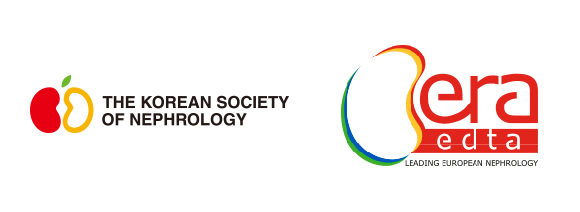The Korean Society of Nephrology (KSN) has held a symposium jointly with the European Dialysis and Transplant Association (EDTA) to share experiences and strategies in responding to Covid-19 for patients with chronic kidney disease.

Professor Luuk Hilbrands of Radboud University Medical Center, Netherlands, who represented the European nephrology society, reported on the impact of the Covid-19 on patients with chronic kidney disease and the study results of vaccines.
Hilbrands emphasized the importance of vaccination for chronic kidney disease patients, who show higher hospitalization and mortality rates than healthy people when infected by the Covid-19 virus. Hillbrands presented various results of studies using mixed vaccination for kidney disease patients.
Professor Edwin A. Brown of the Imperial College London, U.K., lectured on the rising pattern of peritoneal dialysis after Covid-19. The difference between peritoneal dialysis and hemodialysis is that patients have to make much fewer visits to hospitals for dialysis.
Brown explained that patients who require hemodialysis are more vulnerable to highly contagious infectious diseases, while those who need peritoneal dialysis show less infection. She expected peritoneal dialysis to be more widely used if the Covid-19 lasts longer as the intervention carries a lower risk of infection.
Professor Cho Jang-hee of Kyungpook National University shared the activities and outcomes of the domestic nephrology association’s Covid-19 emergency response committee. The committee was formed immediately after Korea confirmed its first patient infected by Covid-19 among those receiving hemodialysis in Daegu, forcing local health officials to separate other patients into a cohort for the dialysis.
The association confirmed infected cases in 11 artificial kidney units, but the transmission of the virus through indoor dialysis stood at only 0.6 percent as the result of successful containment.
Professor Shin Eui-cheol from the Korea Advanced Institute of Science and Technology explained various immunological aspects of Covid-19 infection.
“The Covid-19 virus is highly contagious and has various mechanisms to stimulate immune cells, potentially causing severe sepsis through increased cytokines in the body,” Shin said. “I believe we can hope for developing vaccines and therapeutics by understanding more about these mechanisms.”
KSN plans to co-host symposiums with EDTA periodically to exchange information and cooperate in their professional field.

